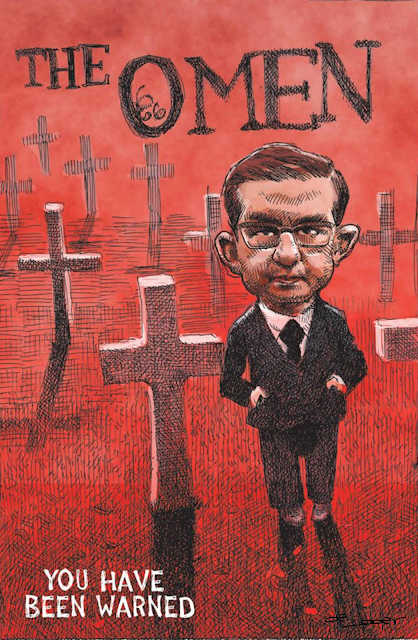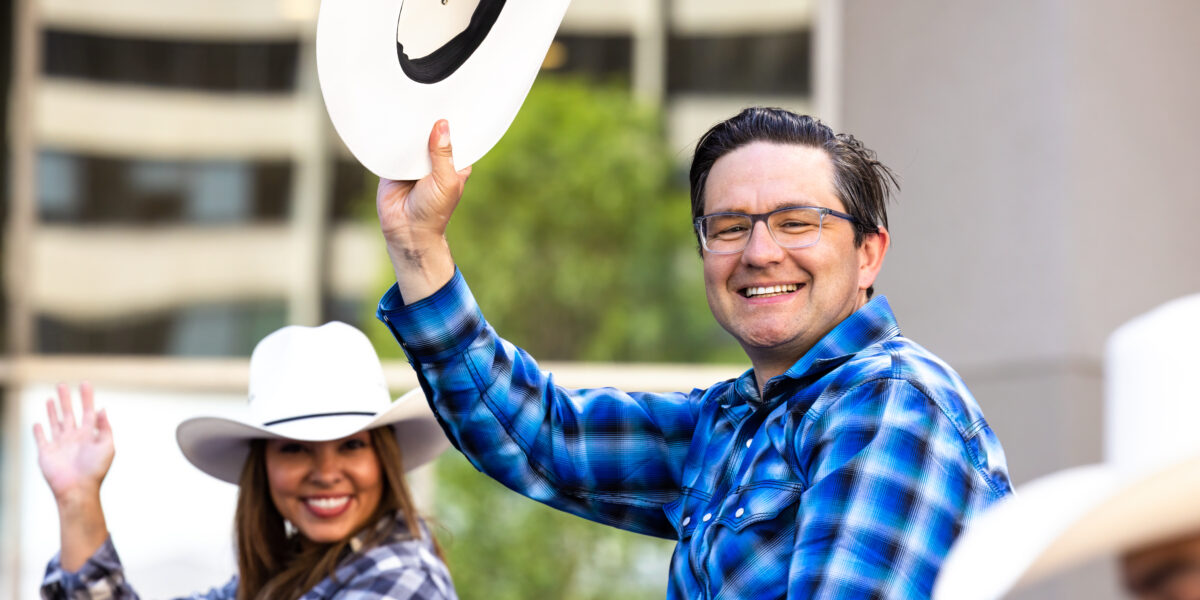Let’s look south at the transformation of American politics under Donald Trump. His return to the presidency of the US has ushered in an era defined by misinformation, corruption, extremism and chaos, all of which threaten the very fabric of democracy. Trump’s brand of populism seems to have captivated millions of Americans, leading them to embrace narratives detached from reality — ones that rationalizes hate and bigotry, dismantle democratic norms, and champion chaos. The last thing that Canada needs is to imitate the failures of our neighbour. Unfortunately, Pierre Poilievre is poised to take us in precisely that direction should he become prime minister.
Make no mistake, Poilievre is not your typical politician, he is a wannabe disciple of the MAGA (Make America Great Again) cult, despite claiming otherwise. He offers a brand of far-right conservatism that is distinctly American in its origins, while proposing policies that would corrode the very values Canadians hold dear. The political platform he has been pushing since he became Conservative leader appears less concerned with the welfare of ordinary Canadians and more aligned with the interests of wealthy elites and far right elements in Canada. Poilievre’s rhetoric about “freedom” is hollow since that freedom would only be for those who align with his world view. But his policies would inevitably erode the rights of a vast majority of Canadians and dismantle policies and programs that sustain them.
There is also the matter of one of the cornerstones of Canadian identity – publicly funded healthcare – an issue on which Poilievre has signalled a willingness to embrace American-style privatization. His cozy relationships with those who champion profits over patient care should alarm anyone who believes that healthcare should be a universal right. Under his leadership, we may witness the slow deconstruction of Canada’s healthcare system as we know it, pushing us towards a society where access to quality care is determined by one’s ability to pay — a far cry from the equitable access that Canadians cherish.
Poilievre was also a very vocal supporter of the so-called “Freedom Convoy,” a movement that was a threat to our democratic institutions, which became synonymous with disinformation, extremism, and even white supremacy. Supporting such a divisive movement was not only a support for insurrection, because of their call to overthrow the federal government, it was also indicative of the dangerous ideology that he is likely to embrace should the Conservatives become the government. Canada cannot afford to have a leader who panders to extremists, racists and bigots who are willing to threaten the collective well-being of Canadians.
If you feel uneasy thinking about this trajectory, you’re not alone. The spectre of American politics is already casting a shadow over Canada. We are faced with the possibility of being engulfed by a divisive and fractious political culture — one where loyalty to a personality supersedes loyalty to principles and Canadian values. Under Poilievre’s watch Canada could find itself marooned in a cycle of misinformation and hyper partisan belligerence, much like what we see unfolding in the US.
Conversely, there is a viable alternative on the political horizon: Mark Carney, the former Bank of Canada governor. Carney embodies the qualities that Canada so desperately needs — a steady hand, intelligence, international experience, and, crucially, a commitment to preserving the integrity of our democracy. He could be the leader that will stand as a bulwark against the toxic influences that threaten to infiltrate our political landscape. Unlike Poilievre, he isn’t a disingenuous figure shouting about “wokeism” and denying the effects of climate change while giving blank cheques to elites. Canada needs a serious leader for serious times and it looks like Carney might be that person.
Canadians are living through an inflection point in history, a time where we need leadership grounded in reality rather than deceptive and performative politics. Carney is someone who, based on his experience, seems to embody a grounded approach, and understands the complexities of a global economy. In his role as Bank of Canada governor he prioritized the needs of Canadians, and his recent public statements during the Liberal leadership campaign indicate that he is committed to safeguarding Canada’s sovereignty from the corrosive influence of American extremism. If we are to avoid the fate of our neighbours to the south then Carney appears to be the man for the job.
The stakes for Canada have never been higher, and Canadians have one shot to halt the encroachment of a Trump-like agenda into our government and politics. History has shown us the dangers of ignorance and complacency, and as we watch Americans deal with the erosion of their democracy and the destabilization of their institutions we must heed the lesson from their example and not allow ourselves to be lulled into a state of apathy or indifference.
So, as the next federal election looms, think carefully about the future you wish to forge for yourself, your family, and your country. A vote for Pierre Poilievre is a vote to endorse the very ideologies that are tearing the US apart. For the sake of our future we cannot afford to make such a grave error, and we must take note of what is happening to our southern neighbour, and reject any path that leads us in the direction of societal division, economic chaos, and despair.
Wake up, Canada. The time to act is now. Let's choose hope, integrity, and leadership that upholds our democratic values. The future of our nation depends on it.

.png)









